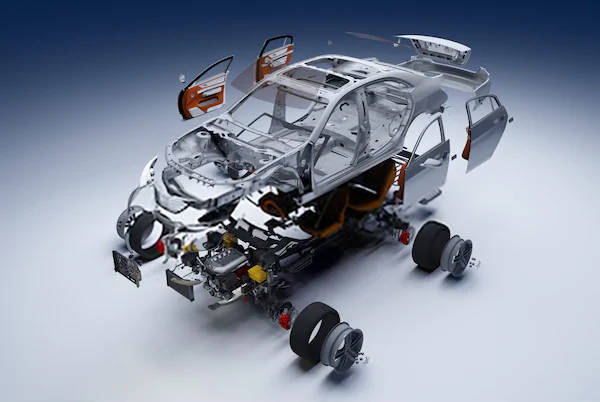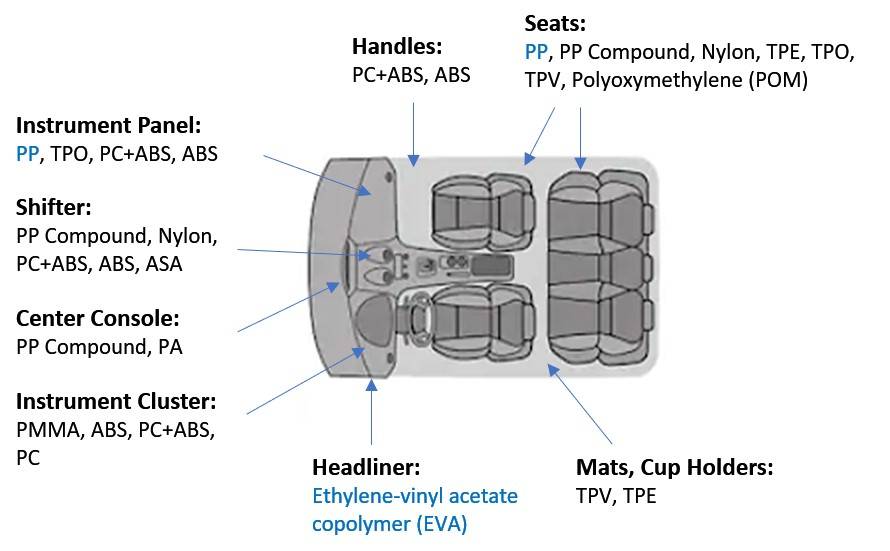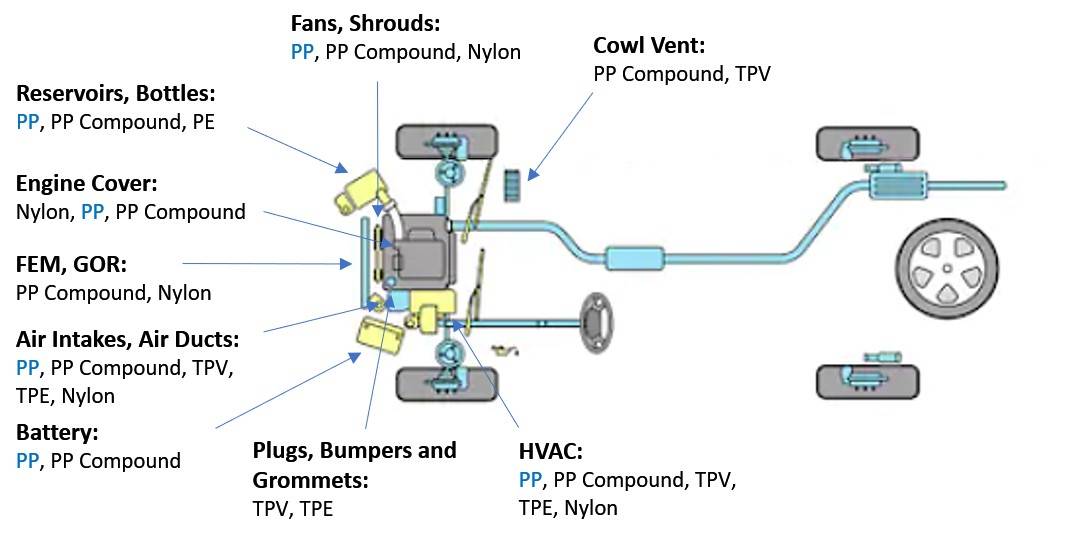Polymer Materials in Automotive Field

With the rapid development of the automobile industry, a series of problems such as energy shortage and environmental pollution have become increasingly prominent. Energy-saving and eco-friendly automobiles have gradually become an inevitable trend in the 21st century. Among them, reducing vehicle weight is one of the key factors. According to reports, for every 10% reduction in the weight of a vehicle, fuel consumption can be reduced by 6% ~ 8%. To achieve the purpose of lightweight, energy-saving and emission reduction, the proportion of structural materials such as steel has been decreased, while the number of new materials such as polymer matrix plastics and composites has been increased annually.
Main Characteristics of Polymer Materials in Automobiles
The Van der Waals force between polymer chains in the material far exceeds that of ordinary molecules, which gives the polymer material enough strength and allows it to be used as structural materials. At the same time, this characteristic also coincides with the consideration of the safety of car body material. Moreover, due to the variability of its chemical properties, polymer material possesses strong adaptability to meet the various requirements of the automotive industry. In general, the external characteristics of polymer materials used for automobiles are mainly light weight, good appearance and decoration effects, multiple practical functions, easy processing and molding, energy saving, sustainable use, etc.
One of the most prominent advantages of polymer materials used in automobile manufacturing is its light weight (only 15~20% of steel). This feature has outstanding advantages especially for high-end large vehicles, which can reduce a large amount of self-weight and achieve a more reasonable distribution of power. In terms of driving, the acceleration performance will be improved if the vehicle is lightweight, as well as the control stability, noise and vibration.
Polymer materials have very good processing properties, and have good compatibility with other materials. Different polymers can be mixed, with the help of various modern molding processing methods, such as extrusion, injection molding, calendaring, molding, blow molding and other methods, for automobiles with different shapes and different properties.
- Excellent Decorative Effect
Polymer materials can be one-time processed into plastic products with complex structures and different colors. Sometimes they can be processed into some realistic images and patterns by pasting, printing, embossing, coloring and other means. Sometimes they can be used to imitate the texture of metal and animal skin, and achieve surface bronzing, silver plating, etc. by other methods.
Synthetic polymer materials, e.g., resins or plastics, can replace a large number of natural materials, which can save a lot of forest resources and stone resources. Moreover, for every 1% reduction in vehicle weight, fuel consumption can be reduced by 0.7%; for every 100kg weight loss, carbon dioxide emissions can be reduced by 5g/km, both of which reflect the economic and environmental benefits of polymer materials used in the automotive industry.
Polymer Materials Used for Automobile Manufacturing
Polymer materials used in automobiles can be generally divided into exterior parts, interior parts and functional structural parts.
Exterior Parts
Poly(methyl methacrylate) (PMMA)Polypropylene (PP)Polypropylene (PP)
Interior Parts

Functional Structural Parts

BOC Sciences can provide a wide variety of raw materials from upstream lines for automotive parts manufacturing, such as monomers, polymers and additives. Our products and custom synthesis services allow you to tailor materials' properties, such as molecular weight, strength, flexibility and hardness. In addition, our professional R&D team is ready to partner with you and help you select the right raw materials to improve your preparation and manufacturing process.
For more detailed polymer or monomer information, please contact us directly.










